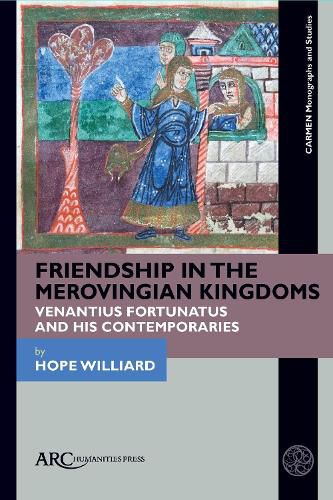Readings Newsletter
Become a Readings Member to make your shopping experience even easier.
Sign in or sign up for free!
You’re not far away from qualifying for FREE standard shipping within Australia
You’ve qualified for FREE standard shipping within Australia
The cart is loading…






This book explores how one early medieval poet survived and thrived amidst the political turbulence of sixth century Gaul-with a little help from his friends. Born in northern Italy, Venantius Fortunatus made his career writing for and about members of the Merovingian elite. Although he is no longer dismissed as an opportunistic poetaster who wrote undistinguished flattery for undeserving kings and aristocrats, his work remains unduly neglected. This book reframes Fortunatus as a writer uniquely suited to his times, a professional poet who addressed his contemporaries’ needs and wishes for the prestige and sophistication of Classical culture. His poems and letters enabled his aristocratic patrons to situate themselves in networks, which they made and maintained in order to navigate a post-imperial but not post-Roman world. It makes an important contribution to our understanding of friendship in the Middle Ages and offers a fresh look at the Frankish kingdoms of Merovingian Gaul.
$9.00 standard shipping within Australia
FREE standard shipping within Australia for orders over $100.00
Express & International shipping calculated at checkout
This book explores how one early medieval poet survived and thrived amidst the political turbulence of sixth century Gaul-with a little help from his friends. Born in northern Italy, Venantius Fortunatus made his career writing for and about members of the Merovingian elite. Although he is no longer dismissed as an opportunistic poetaster who wrote undistinguished flattery for undeserving kings and aristocrats, his work remains unduly neglected. This book reframes Fortunatus as a writer uniquely suited to his times, a professional poet who addressed his contemporaries’ needs and wishes for the prestige and sophistication of Classical culture. His poems and letters enabled his aristocratic patrons to situate themselves in networks, which they made and maintained in order to navigate a post-imperial but not post-Roman world. It makes an important contribution to our understanding of friendship in the Middle Ages and offers a fresh look at the Frankish kingdoms of Merovingian Gaul.